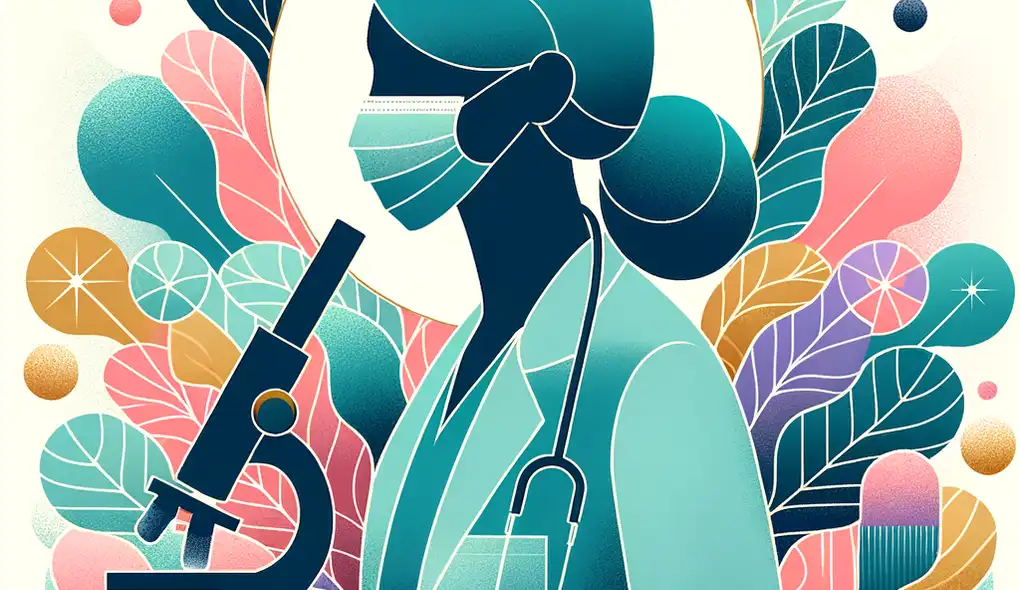Can you explain the process of detecting abnormalities or diseases in body fluids using a microscope?
Clinical Laboratory Technologist Interview Questions
Sample answer to the question
The process of detecting abnormalities or diseases in body fluids using a microscope involves conducting chemical analyses of the fluids, such as blood and urine. We use both microscopes and automatic analyzers to examine the samples. After collecting the samples, we prepare them for testing by following standard laboratory procedures. We carefully analyze the samples under the microscope, looking for any abnormalities or signs of diseases. We also use computer systems to enter and store the data from the analyses. Additionally, we participate in proficiency testing programs to ensure the accuracy of our test results. If needed, we consult with senior technologists and supervisors for guidance and support.
A more solid answer
As a Clinical Laboratory Technologist, the process of detecting abnormalities or diseases in body fluids using a microscope involves conducting chemical analyses of the fluids, such as blood and urine. We utilize both microscopes and automatic analyzers to examine the samples. For example, when analyzing blood, we perform a complete blood count (CBC) to assess red and white blood cells. We also look for any abnormal cell morphology or signs of infections or malignancies. In urine analysis, we examine the samples for the presence of bacteria, crystals, or abnormal cells. Throughout the process, we pay meticulous attention to detail to ensure accurate results. We follow standard laboratory procedures and safety guidelines when handling the samples and operating the equipment. We also enter the data from the analyses into the laboratory information system (LIS) for storage and further analysis. To maintain proficiency and accuracy, we participate in proficiency testing programs. We communicate effectively with senior technologists and supervisors, consulting them when necessary for guidance or to report any significant findings or challenges.
Why this is a more solid answer:
The solid answer provides more specific details about the candidate's experience and skills in the relevant evaluation areas. It includes examples of specific tests and analyses conducted and emphasizes the candidate's attention to detail, adherence to procedures, and effective communication skills. However, it can still be improved by demonstrating problem-solving skills and time management abilities.
An exceptional answer
As a Clinical Laboratory Technologist, the process of detecting abnormalities or diseases in body fluids using a microscope is a multi-step procedure that requires strong analytical and problem-solving skills. We start by collecting the samples, ensuring proper identification and labeling. Next, we perform various chemical analyses of the fluids, such as blood and urine. For blood analysis, we conduct a complete blood count (CBC) to assess red and white blood cells, hemoglobin, and platelets. We also perform blood smears to examine the morphology of the cells and detect any abnormalities. In urine analysis, we assess the color, clarity, and specific gravity of the sample. We look for the presence of bacteria, crystals, abnormal cells, or other indications of urinary tract infections or kidney diseases. Throughout the process, we maintain meticulous attention to detail and accuracy, verifying results multiple times to minimize errors. We follow strict laboratory procedures and safety guidelines, including the proper handling and disposal of biohazardous materials. We utilize laboratory information systems (LIS) to enter and store the data from the analyses, ensuring traceability and easy access for future reference. To stay current with advancements in the field, we actively engage in continuing education and attend conferences and workshops. Time management is crucial in our role, as we prioritize tasks efficiently to meet deadlines and provide prompt results. We also collaborate and communicate effectively with our team and healthcare professionals, discussing complex cases and reporting any significant findings or challenges. In challenging situations, we apply our problem-solving skills to troubleshoot issues and find optimal solutions. Overall, our goal is to contribute to accurate diagnosis, treatment, and prevention of diseases through our expertise in detecting abnormalities and diseases in body fluids using a microscope.
Why this is an exceptional answer:
The exceptional answer provides a thorough and detailed explanation of the process of detecting abnormalities or diseases in body fluids using a microscope. It demonstrates the candidate's strong analytical skills, attention to detail, adherence to procedures, and effective communication skills. The answer includes specific examples of tests and analyses conducted and highlights the candidate's commitment to ongoing education and professional development. Additionally, it showcases problem-solving skills and emphasizes the importance of time management in the role. This answer exceeds the basic and solid answers by providing more comprehensive information and showcasing the candidate's expertise in all the relevant evaluation areas.
How to prepare for this question
- Familiarize yourself with the laboratory equipment commonly used in the detection of abnormalities or diseases in body fluids
- Review the steps involved in the process, including sample collection, preparation, and analysis
- Stay updated on the latest advancements and techniques in laboratory medicine
- Practice attention to detail and accuracy in your work
- Enhance your problem-solving and analytical skills through solving case studies and participating in mock scenarios
- Improve your time management skills by prioritizing tasks and practicing efficient workflow
What interviewers are evaluating
- Analytical Skills
- Attention to Detail
- Laboratory Equipment Knowledge
- Following Procedures
- Communication Skills
Related Interview Questions
More questions for Clinical Laboratory Technologist interviews